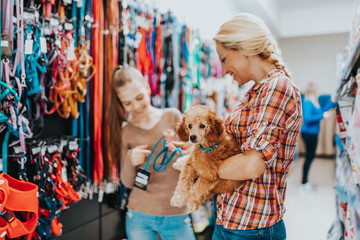

Being cautious of scams when buying a pet is crucial. While getting a friend is an exciting time there are dishonest individuals out there looking to take advantage of unsuspecting buyers. This guide aims to help you steer clear of schemes while purchasing a pet ensuring an positive experience.
1. Watch Out for Online Pet Scams
With the rise of platforms, for transactions it's important to be wary of scams. Fraudsters often create listings with stolen images and descriptions to lure in buyers.
How to Identify Online Pet Scams;
Unrealistically Low Prices; If the pets cost seems good to be true compared to market rates it could be a scam.
Stock Images; Scammers frequently use stock photos or pictures from sources. Conduct an image search to verify the legitimacy of the images.
Lack of Video Call; If the seller avoids arranging a video call featuring the pet it might raise suspicions.
Payment Requests; Exercise caution if the seller requests payment through methods, like wire transfers or gift cards.
Fake Animal Rescue Organizations
Some dishonest individuals pretend to be animal rescue groups, in order to take advantage of the kindness of people interested in adopting pets. They set up convincing websites and social media accounts to give the impression of legitimacy.
How to Spot Fake Animal Rescue Organizations;
Absence of Registration; Legitimate animal rescue organizations are usually registered as non profits. It's important to verify their registration status and look into any complaints or feedback.
Lack of Physical Address; Be cautious of organizations that do not have a location or are unable to provide an address.
Unusually High Fees; While adoption fees are high fees or unexpected additional charges could indicate a potential scam.
Pressure Tactics; Scammers frequently use tactics that pressure individuals into making decisions and payments.
Purebred Pet Deception
Scammers often target purebred pets because of their market value. They might offer purebred pets that don't actually exist or pass off mixed breed animals as purebreds.
Tips for Avoiding Purebred Pet Deception;
Thoroughly Research Breeders; Only purchase from breeders who have reviews and verified credentials. Seek out breeders who are associated with known breed clubs or organizations.
Health Certificates; Authentic breeders provide health certifications and detailed pedigree information. Request these documents. Confirm their legitimacy.
Visit the Breeder in Person; Whenever feasible make a visit, to the breeders location to observe how the animals are cared for.
Make sure you also get to meet the pets parents.
Watch out for breeders who ask for payments upfront without proving their credibility.
Scams Related to Pet Shipping
In shipping scams scammers pretend to provide transportation services but ask for payment, in advance and never deliver the pet.
Tips to Avoid Pet Shipping Scams;
Check the Service; Opt for known and reputable shipping companies. Read reviews. Verify their legitimacy with industry associations.
Written Agreement; Have a written agreement that outlines the shipping details, costs and responsibilities.
No Hidden Fees; Be cautious of any requests for fees, after the payment. Legitimate companies will give you a cost estimate
Beware of Insurance Scams; Some scammers may insist on buying insurance before shipping. Confirm this requirement directly with the shipping company.
5. Puppy Mills and Unethical Breeders
Puppy mills are breeding facilities that prioritize profits over animal welfare. Unethical breeders may follow practices by selling sick or poorly bred pets.
Identifying Puppy Mills and Unethical Breeders;
Number of Pets; Puppy mills typically have a volume of pets available all the time.
Be careful when dealing with breeders who have a number of puppies.
Check for signs of neglect or poor living conditions, in photos. When visiting the breeder.
Watch out for breeders who do not provide health records or vaccinations for their pets.
Pets from mills often lack socialization, which can result in issues.
Rehoming scams involve people pretending to be owners looking for homes, for their pets. They often create stories to gain sympathy and financial assistance.
Tips to Avoid Rehoming Scams;
Ask for proof of ownership like records or registration papers.
Meet the owner and the pet in person to verify the situation.
Be cautious of stories that aim to evoke sympathy and pressure quick decisions.
Do not make payments without confirming the legitimacy of the rehoming arrangement.
Fake pet supplies and accessories scams are also prevalent, where scammers sell low quality products at prices.Here are some suggestions to steer clear of supplies;
1. Shop, at Established Retailers; Opt for supplies from well known stores. Check out their return and refund policies.
2. Read Customer Reviews; Take a look at feedback from shoppers to assess the quality and authenticity of the items.
3. Cross Check Product Information; Compare the product details with what the manufacturer provides to make sure you're buying a product.
4. Be Cautious of Deals; Watch out for deals that seem good to be true especially on unfamiliar websites.
In conclusion welcoming a pet into your life should be an experience but its crucial to remain alert and informed about possible scams. By conducting research verifying sellers credibility being vigilant, with payments and personal data you can safeguard yourself against activities. Trust your instincts. Take your time in making informed choices for a safe and positive pet adoption process.